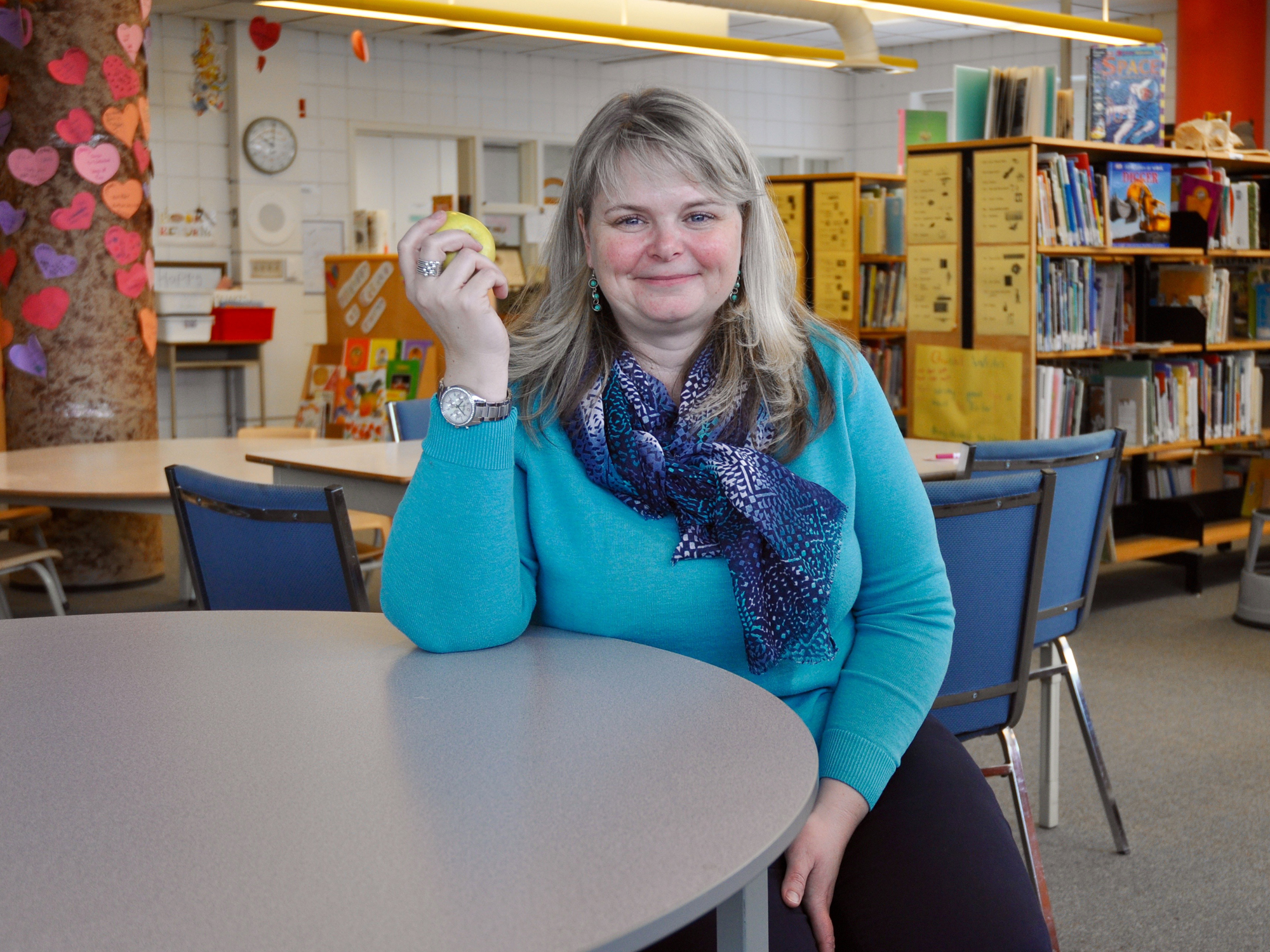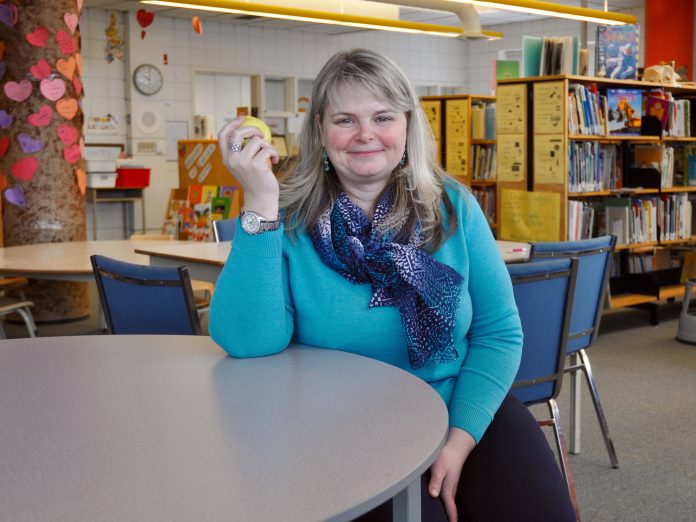By Anne Boys-Hope –
You’ve heard about computers for schools? How about apples for schools? Not the kind for computing, but the kind for eating. A Westboro elementary school is bringing apples into the classroom to provide a healthy snack and encourage healthy living.
Starting this month, Churchill Alternative School’s apple a day program will bring the “core” curriculum to life—inviting students to taste, smell and touch their healthy living lessons.
Principal Megan Egerton says an apple a day is a win-win for educators: fostering healthy eating choices and improving student learning.

“Students love the idea of having a piece of fresh fruit there for the taking, and it really seems to help students learn for a sustained period of time,” says Megan. “When students eat right and are not hungry, they learn more.”
With a $1000 grant from the Metro Green Apple School Program, the school is planning to buy one apple a day for each student. They estimate that students will go through about 250 apples every week. That adds up to 1000 a month and 4000 by the end of the school year. The school has its own composting program, so even the waste from the apples will give students hands-on learning opportunities.
The apples will be placed out in bowls in every classroom and at the office. Students get to decide when they eat, even if that means snacking during class time. This “help yourself” approach prevents kids from getting hungry and losing steam between scheduled meal times. It also fosters independent learners, a key component of the alternative school philosophy.
“The idea is that students will eat when they are hungry rather than working around our set scheduled times, which don’t always coincide with when a child is hungry or needs a snack,” says Megan.
Churchill ran the program two years ago, and is bringing it back by popular demand.
“It was a very successful initiative because we had the help of parents to pick up and distribute the apples, we had parents supporting healthy choices and ensuring that there are a variety of apples from week to week to keep interest and spark discussion,” says Egerton. “Having a healthy snack available only further supported what we already knew—hungry kids don’t learn the same way that others do!”
Laurie Kizik, who is co-chair of parent council, saw the benefits firsthand.
“Both students and teachers were amazed at how a single apple could fill a hunger gap, boost energy levels and help a student focus,” says Laurie.
Grade two student Owen Skafel says a single apple can do a lot more than that—even solve a pesky problem.
“I can eat them if I’m hungry AND they help with my loose teeth,” says seven-year-old Owen.
The apple-a-day program will take root at Churchill Alternative School from March to June.
